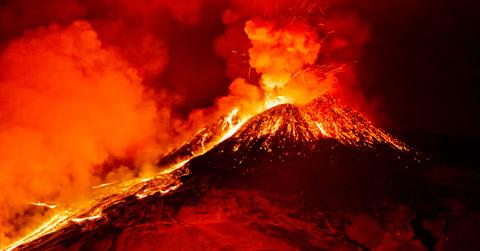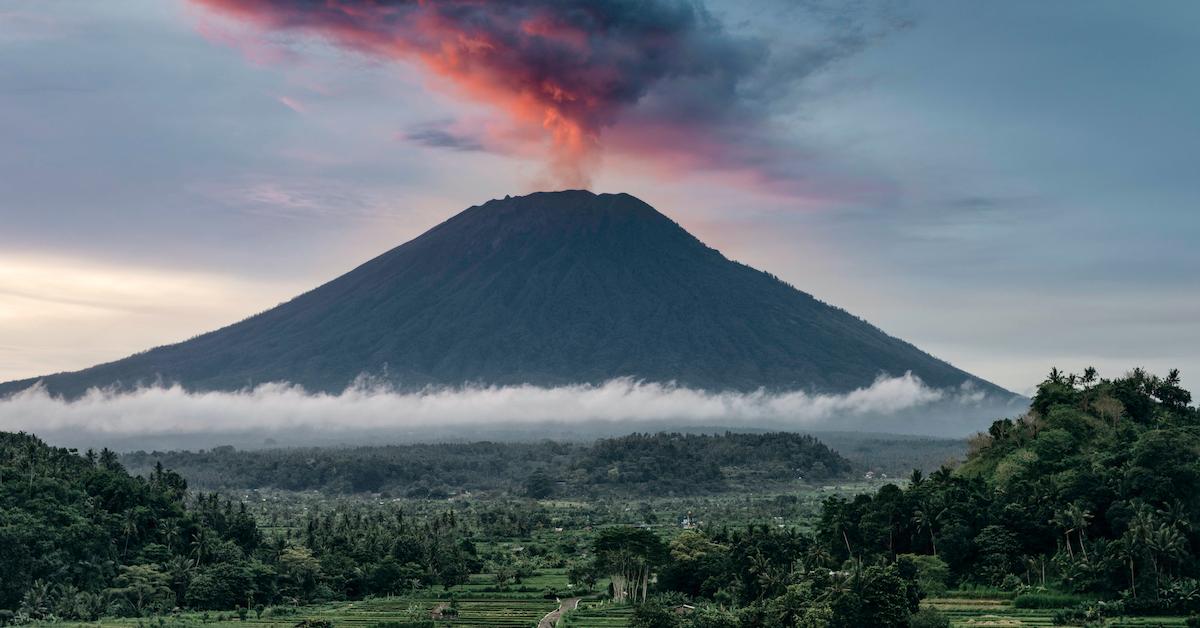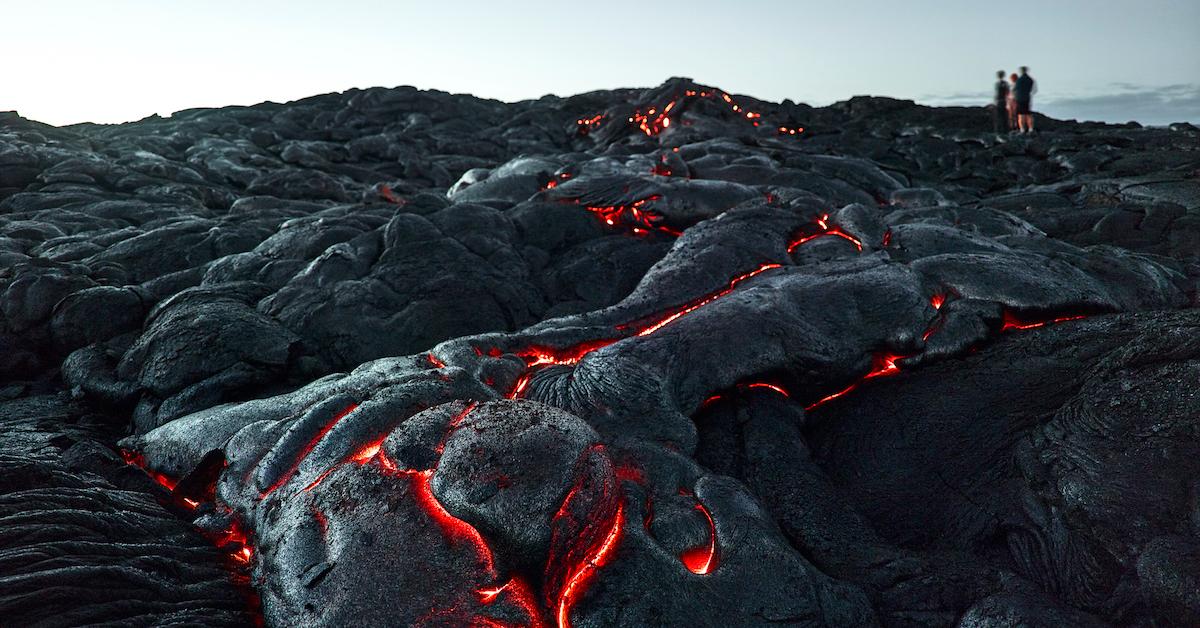Here's What Actually Happens When a Volcano Erupts
Published Dec. 1 2020, 1:10 p.m. ET

Although a vast majority of U.S. states don't face the possibility of ever being affected by volcanic eruptions, there are 169 active volcanoes nationwide, according to American Geo Sciences, and an estimated 1,500 across the globe. That being said, depending on your location, the likelihood of facing an eruption isn't completely impossible, so being educated on the matter could be somewhat important.
What happens when a volcano erupts? Read on for the rundown regarding what actually occurs during an eruption — the effects can be catastrophic or practically next to nothing, depending on a number of factors.

What causes a volcano to erupt?
Volcanoes are seriously fascinating natural structures. Volcanoes are essentially natural vents that essentially allow the planet to exude its own heat made up of subsurface molten rock. According to Thought Co, an eruption most often happens when lava from beneath the earth's surface combines with rock and thickens, turning into magma. Then, it eventually erupts through the volcano's opening when there is enough pressure added to it.
Oftentimes, magma flows upwards through a tube-like structure (which is known as the throat of the volcano) and it spews out from the top, which is most likely what you've seen take place on T.V. The lava, as well as gases and ash, flow outwards, and can sometimes create hills and mountains. This has happened on the Big Island of Hawaii, and in other locations where volcanic activity is prevalent.

What happens when a volcano erupts? The results can be deadly.
The explosivity of a volcano depends on the magma's composition, according to USGS. Runnier magma generally enables gas to easily escape, causing the magma to flow outward. Lava flows don't often lead to fatalities, as it generally moves quite slowly. However, when the magma is thicker, it can cause more of an explosion. Thick magma is particularly dangerous, as it can cause house-size boulders to explode into the air. Either way, we strongly suggest evacuating if an eruption is in the forecast.
These highly explosive volcanoes can be deadly, as explosive magma can destroy anything in its path, including animals, plants, and sometimes humans. If the hot magma combines with fresh water or runoff from snow or ice, however, it can also result in another natural disaster called a mudflow, also known as a lahar, according to Class Zone. These are also potentially deadly, and in the past, they have suffocated full towns and cities with natural earth materials and debris.
Sometimes, eruptions just lead to a ton of ash in the air, which can ultimately lead to breathing problems, and create travel disruptions, in nearby communities. According to The BBC, this occurred when Iceland's Eyjafjallajokull erupted in 2010, causing an ash cloud to form and spread across Europe, canceling upwards of 100,000 flights. At the time, affected airlines lost an estimated £1.3 billion.
Volcanoes are fascinating but can obviously be quite dangerous — if your area receives an alert for any type of potential volcanic activity, we strongly advise adhering to any evacuation warnings.